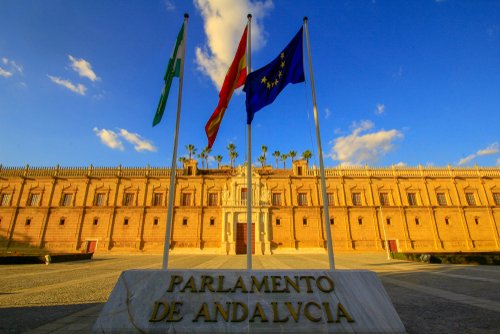Political, Social, and Legal Ramifications Loom as Spain Grapples with Historic Decision
Belgium (Brussels Morning Newspaper), In a bold and contentious move, the Spanish government has pledged amnesty for Catalan separatists, setting off a firestorm of debate and protests across the country. The decision, a concession made to secure political support, particularly from the Catalan Republic Left and Junts per Catalunya, has ignited discussions about its potential consequences and the likelihood of its legal approval.
The roots of this controversial promise can be traced back to the aftermath of the May 2023 regional and municipal elections. Despite allegations of vote-buying against the two major political parties, the Spanish Socialist Workers’ Party (PSOE) and People’s Party (PP), Pedro Sanchez’s PSOE failed to secure a majority. To form a coalition government and clinch the majority of seats in the Parliament, PSOE allied with Unidas Podemos, Catalan Republic Left, and Junts per Catalunya. The latter two parties conditioned their support on the granting of amnesty to Catalonian pro-independence activists, including Carles Puigdemont, facing charges since 2017.
To comprehend the significance of this move, one must delve into the historical backdrop of Catalonia’s quest for autonomy. Despite gaining increased autonomy in the 1978 constitution and further empowerment in 2006, Catalonia’s national identity was challenged in 2010 when the Constitutional Court of Spain revoked its “nation” status. The tension escalated in 2014 with a symbolic independence referendum, reaching a boiling point in October 2017 when Catalonia’s bid for independence triggered a political crisis and mass protests.
The proposed amnesty for separatists, however, has struck a nerve in Spanish society. The events of 2017, marked by protests, police suppression, and Carles Puigdemont’s self-imposed exile, left deep scars on the nation’s psyche. A staggering 70% of Spaniards are reportedly opposed to the amnesty, viewing it as a threat to the country’s territorial and social integrity. Dissent is not limited to the public; some Supreme Court judges and members of the Spanish Parliament have also voiced their opposition to the government’s proposal.
The announcement of amnesty has sparked massive protests, with 80,000 people gathering in Madrid and a staggering 300,000 in Barcelona in November 2023. The draft bill, titled the “organic amnesty law,” extends clemency not only to the 2017 activists but also to 309 individuals facing criminal lawsuits, 73 police officers involved in the referendum, and even two cases of alleged terrorism linked to pro-Catalan independence groups.
If enacted into law, the amnesty would permit Puigdemont and other exiled figures to return to Spain, potentially exacerbating tensions and intensifying societal disapproval. The amnesty proposal hangs in the balance, awaiting further deliberations and potentially reshaping Spain’s political and social landscape in unforeseen ways.




